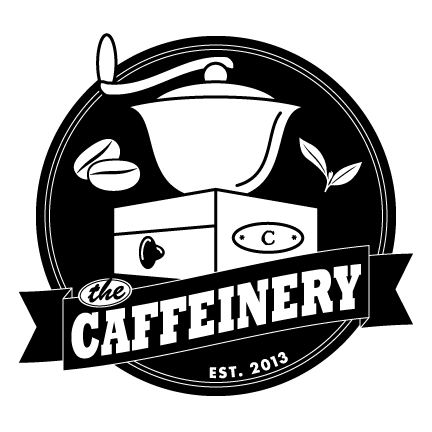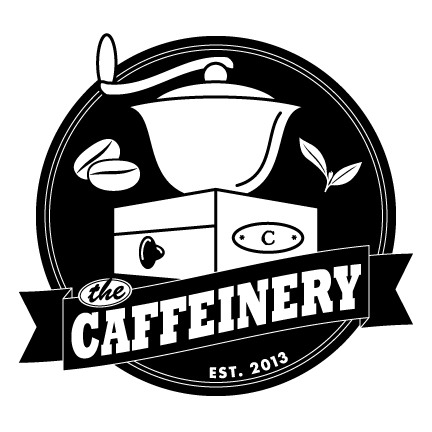
If you consider yourself a coffee connoisseur, you know that even the smallest details can have a major impact on the taste of your brew.
But most people focus so much on the type of coffee bean, the way it is roasted, or even the way the beans are ground – and they ignore one of the major ingredients affecting the taste: the water.
You heard that right – you need to choose the right kind of water for coffee if you want a tastier cup.
Why Does Water Impact the Taste of Coffee?

Although water itself is a neutral flavor, it can have a different taste depending on the way that it is filtered, sourced, or processed. You may notice that some waters taste different from each other, such as how tap water tastes different than bottled.
This is because minerals and compounds in the water can give it a hint of flavor. According to LiveScience, specific elements can give water distinct flavors. For instance, water that has a fishy or earthy taste likely has bacteria or algae blooms in the source. More bitter water may have traces of metal, such as copper, from the pipes it runs through.
The United States has some of the safest and cleanest water supplies on earth. The Safe Drinking Water Act was passed to limit the types of microorganisms, chemicals, and metals allowed in water supplies in the country. But some tap and well sources contain varying concentrations of minerals and compounds that impact the flavor.
And when you use different types of water for coffee, it will change the flavor of the beans.
It is important to note that any coffee shop worth its water (pun intended) likely has very strict water standards for their business. Many follow the Specialty Coffee Association of Amerca’s standards, which set the target range of chlorine levels, calcium, alkalinity, and pH levels of the water used in coffee roasting and barista competitions.
This is why it’s often so difficult to create a cup of coffee at home that tastes as good as one at a coffee shop. Often, coffee shops will do their best to adhere to these standards in their cafes in order to provide the best drinking experience. While you may not be able to perfectly emulate the same formulation, there are affordable options that anyone can try.
So, what is the best water for coffee you ask? Let’s find out.
Tap Water

It is safe to say that most people who make their coffee at home just use water straight from their kitchen tap. But depending on where you live, the water running through your home’s pipes could come from a variety of sources.
About 15% of people in the US have water from a well source, while others receive their water from local processing plants or natural springs. Well water is not as regulated or filtered, so it may contain minerals, sulfur, metals, and even traces of pesticides, which give it a distinct taste.
Tap is not always the best water for coffee, especially if it contains metals or other solvents. It can increase the acidity of the beans, resulting in an exceptionally bitter brew. The key is to consider how the water tastes on its own: if it has a minerally or sulfur-like flavor, this will be even stronger in your coffee.
A common issue with tap water is that its flavor can fluctuate widely depending on your location. Some areas of the country have a higher mineral or sulfur content than others. This can lead to over-mineralization, resulting in an unpleasant taste.
Distilled Water
Distilled water is a filtration process that naturally removes minerals and metals. The water is heated up to its boiling point and the steam is collected and cooled back into water. Most minerals and metals have a far higher boiling point than water does – so they are naturally removed.
Distilled water may also go through additional steps of purification to remove any remaining contaminants. This results in the purest form of water.
So, does distilled water make good coffee? Well, it depends on your preference for flavor. If you use distilled water for coffee, it will have the least impact on the flavor of the beans. It is considered to be the most neutral type of water as it has no real distinct taste.
However, some people do not enjoy distilled water as it seems a bit flat – kind of like water that has been left out for a few days. This can create a rather bland cup of coffee in some cases. Since distilled water does not contain minerals, it leaves a rather odd mouthfeel as you drink it. It is similar to drinking a very dry wine – your mouth will feel slightly dry and tingly afterwards. This can exaggerate the acid in the coffee, sometimes resulting in an unpleasant aftertaste.
Filtered Water

At-home water filters are super common. Some are designed as refillable pitchers that are stored in the fridge, while others are hooked directly up to the faucet. These are designed to quickly filter out impurities, chlorine, and odors through an activated carbon filter.
This is a great solution if your tap water source has any odd flavoring to it. However, some filters work better than others and the quality of filtration declines over time. You will just need to stay on top of replacing your filter regularly.
Mineral-Enhanced Water
You can buy mineral water at many grocery stores or even have it delivered to your home. While some minerals give water a bad taste, others can actually enhance its flavor. The most common minerals added to this water are:
- Calcium
- Magnesium
- Sodium
- Iron
- Zinc
- Potassium
- Bicarbonate
These minerals can also provide health benefits, such as lowering blood pressure, helping with muscle cramps, and strengthening bones.
When you use mineral water for coffee, it can strengthen some of the subtler flavor notes. Magnesium is a particularly great mineral that brings out coffee flavors.
Mineral water is not the best water to use in a coffee maker. Calcium and sodium in the water can build up, damaging the machine. Some special brewing equipment (especially espresso machines) warn users not to pour in mineral water for this reason. You may even risk voiding your warranty if your water’s TDS (total dissolved substances) exceeds their standards!
It is better to use mineral water for pour-over coffee or in a French Press, as long as you clean up well afterward.
Bottled Water

Bottled water is common and convenient. About 20% of Americans drink bottled water every single day. You may notice that some brands of water taste different than others, though. This is because they use different processes to filter the water. Some even add sodium to enhance the water’s flavor.
Bottled water is great for making coffee if you have no other filtration options available. However, it can impact the taste, especially if sodium is added. Sodium will create a more acidic brew and it actually suppresses the flavor notes of the beans.
Generally, it is safest to use bottled spring water for coffee - as this will have the least amount of additives and result in the best cup of Joe.
So, What’s the Best Water to Make Coffee?
There is no clear-cut answer on the best water to make coffee – it really depends on your preferences. Some people enjoy mineral water to bring out the flavor of the beans, while others want a more neutral brew so they can add in flavors on their own.
The best way to discover the most ideal water for coffee is to try it out for yourself. Experiment by making coffee at home with different water types and see how it changes the flavor. If you’ve got a coffee shop that always makes a great cup, ask what type of water they use!
Here at the Caffeinery, we love talking about coffee. If you’ve got any questions about what type of water for coffee to try next, which beans to try next, or have a comment to share, please post it below!


Share:
How to Make Coffee with a Percolator
Too Legit To Quit